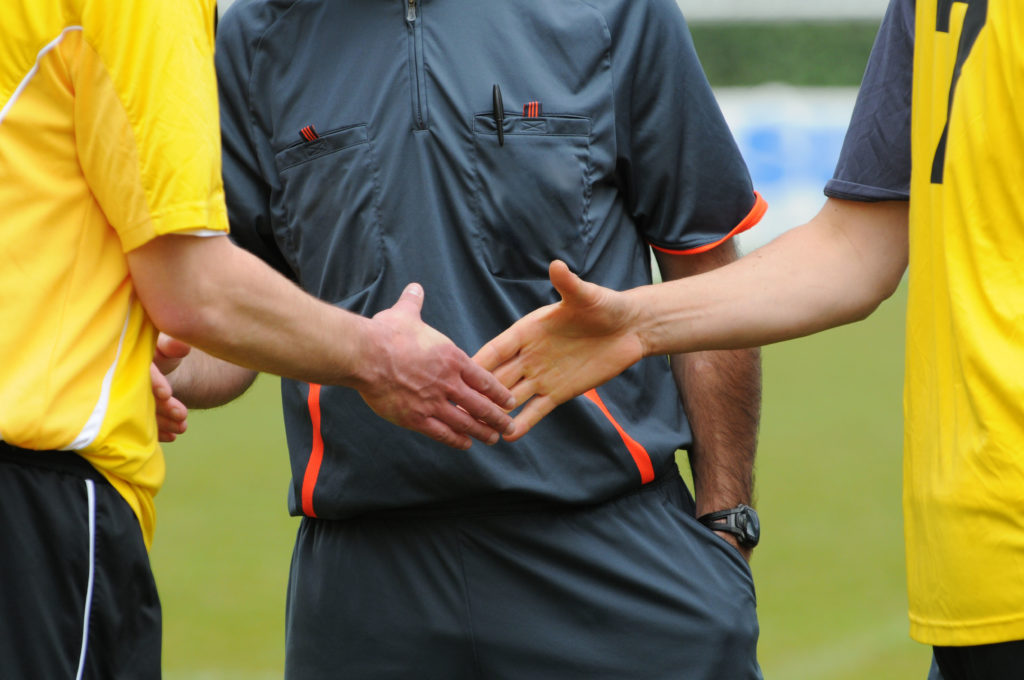The best possible team of individual officials in the league who come together and communicate with each other poorly on the pitch will perform mediocre at best, while a team of average performing officials who communicate flawlessly will be achieve a higher level of accuracy in their decision making every single time. Effective communication on the field of play is an absolute essential trait that quality officiating teams must have to be successful, from the referee, to their assistants, all the way down to the fourth official. Every team member must be on the same page.
The Individuals
Everyone’s personality is unique. One referee may naturally feel motivated to improve after having made an error, while another may naturally feel extremely disappointed and low. Every individual in the team of officials, regardless of their role, has to be understood on a motivational level. some referees may need to communicate what they’re seeing phase by phase to reinforce their decision making, whist others may be able to see the game and make decisions as they happen within the game.
Off the Field
Off the field is when referees and officiating teams get better, not on an execution level, but on a team building level. Often, it’s in the dressing room that you learn the most about your colleagues. Talking about past experiences of teams, games or players. Conversation can also turn to hobbies and each other’s backgrounds and this can help you understand the person better. This way, you know what things to say, and what not to say, when trying to motivate each other on the field. Many professional officials have problems retiring, not because they miss refereeing games, but because they miss being part of a group of referees.
On the Field
As opposed to off the field communication, effective communication on the field varies considerably from game to game, depending on the level the game is being played at. For example, there is constant communication going on. From coaches disputing decisions being made on the field, to players expressing their opinions (good and bad) at close proximity.
Non-Verbal
Research has shown that, 70 percent of human communication is non-verbal. Many times hand signals and a series of signs are used to indicate between officials what each other has seen on the field. Therefore, making sure that every referee in the team knows the signals to be used on a matchday, and ensuring that the signals are complicated and varied enough so that neither team, sets of club officials or spectators can pick up on them easily, are extremely important aspects to effectively communicating during fixtures.
Time Frame
Great officiating teams are not formed overnight. Sometimes, at the top level, it takes years of referees working together to form a solid bond of communication, verbal and non-verbal, before the team can communicate and execute seamlessly on the field. Referee coaches, tutors and mentors often arrange for activities to take places where the sole intention is to improve on-field communication. For example, it’s standard for practice to include some form of intense physical training followed by a pause where an immediate decision must be made with only one view of the incident before recommencing the intense physical training as the process is repeated a number of times.
Feedback
As referees, feedback is the basis of successful communication. When you have the desire to improve then the feedback of a coach or observer can be the difference between missing out on or securing a promotion as you can implement their advice. You could say feedback is a device with which the members of a team, at any level, can receive a performance evaluation and can also give advice to each other.
However, all these aspects linked to communication between officials will be directly reflected in the team’s performance. It’s always positive to take them into account and try to apply them in our games.
At The Third Team I work individually and in collaboration with different professionals where I have developed workshops associated with Resilience and Mental Toughness Development to help referees. The workshops are interactive, where referees are encouraged to open up and share their experiences to help each other.
Feel free to contact me if you’d like to know more about my workshops and how I could help you or your officials.
Best Wishes,

Nathan Sherratt
Referee Educator & Managing Director of The Third Team

Nathan Sherratt
Nathan Sherratt, Referee Educator, Resilience Trainer and Managing Director of The Third Team. A Mental Toughness Practitioner based in County Durham, North East England.

